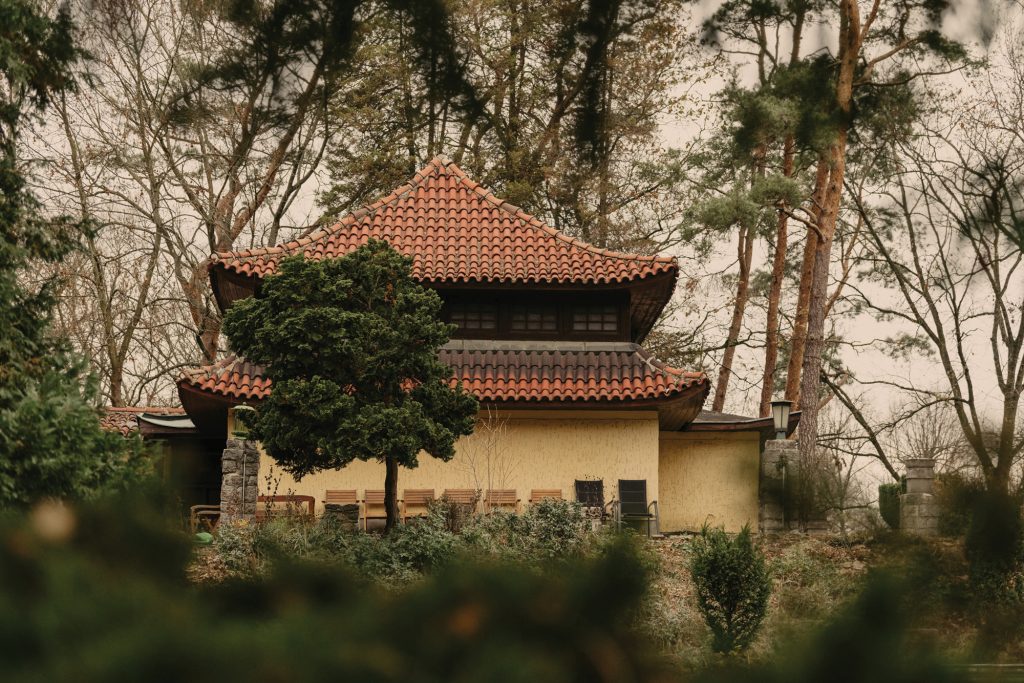From the Reichstag to the Brandenburg Gate to the Topography of Terror, Berlin oozes with opportunities for contemplation, especially when it comes to the Second World War, which seems much less distant in Germany’s capital city.
The dharma runs deep throughout the rest of Germany as well—Karl Seidenstücker, who declared Buddhism “the religion of the future,” founded a convert Buddhist congregation in Leipzig way back in 1903. The first Theravada Buddhist center in Europe was founded on the outskirts of Berlin in the 1920s, and the influential Buddhist nun Ayya Khema was born in Germany’s capital in 1923. She emigrated to Scotland in the late 30s, later reuniting with her Jewish family in Shanghai.
The German government doesn’t keep an official tally on the number of Buddhists (though religious Christian and Jewish Germans pay an annual Kirchensteuer, or church tax), but the German Buddhist Union estimates that the number is around 250,000 and growing.
Here are seven suggestions for Buddhist visitors to the Gray City:
1|Das Buddhistische Haus
Start your journey at the oldest and largest Theravada center in Europe. Founded in 1924 by Dr. Paul Dahlke, a physician and devoted practitioner, the Asian-architecture–inspired complex is built on a hill in the city’s affluent Frohnau area, with 73 steps leading up to the temple (visitors should keep this climb in mind when planning their visit). Dahlke died just four years after construction began, and the buildings housed refugees during World War II. Monks started moving in during the 1950s; today, the center is open daily for lay practitioners and monastics and hosts regular lectures, courses, and retreats.
Edelhofdamm 54
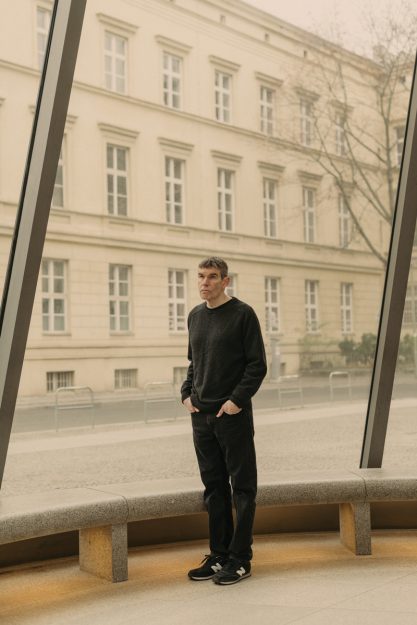
2| Berlin Dharma
Need a dharma-talk fix while you’re here? All talks at Berlin Dharma are given in English by New York expat and Insight meditation teacher Peter Doobinin. Doobinin holds weekly talks on Thursday evenings in Prenzlauer Berg, as well as multi-part courses at rented spaces throughout the city (check the website for locations).
3|Holocaust Memorial
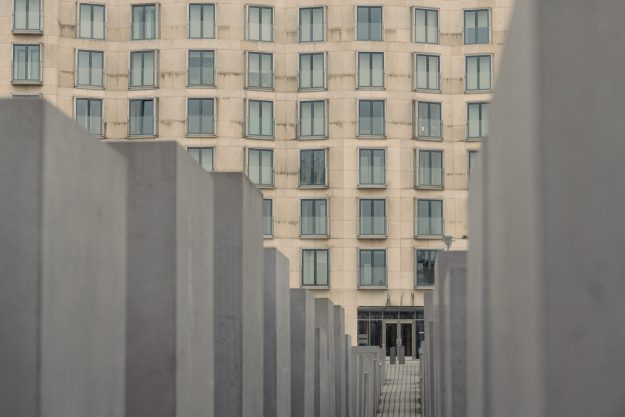
The memorial isn’t Buddhist, but the horrors of the Holocaust are often remembered here by Jewish Buddhists and others, like the Zen Peacemakers, who have held “bearing witness” retreats at Auschwitz for more than two decades. Berlin’s simple memorial, constructed from 2,711 slabs of gray concrete, provides an incredible contemplative experience, especially as one ventures farther into the memorial and becomes dwarfed and confused by its overwhelming labyrinth.
Cora-Berliner-Strasse 1
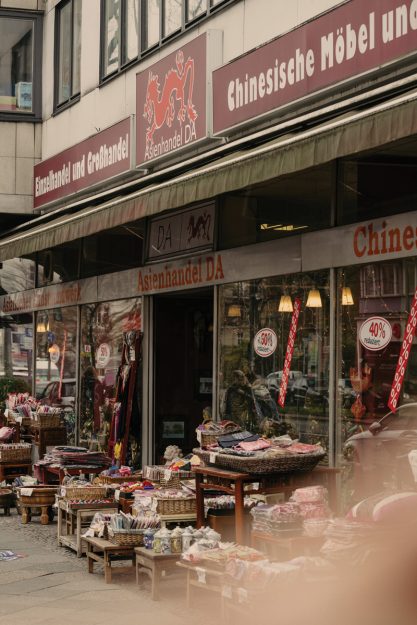
4| Kantstrasse
Don’t expect any classical Chinese architecture along Kantstrasse, a street in the western Berlin neighborhood of Charlottenburg that resembles most other streets in the city, except for Peking ducks hanging in a window. But in fact, Chinese immigrants who began settling here in the 19th century were followed by a wave of students in the early 20th century. Today, the block is home to restaurants and businesses from countries throughout Asia. You’ll find all the dumplings and delicacies a tourist might want (we can vouch for Madame Ngo’s pho and Lon Men’s gua bao).
5| Lotos Vihara
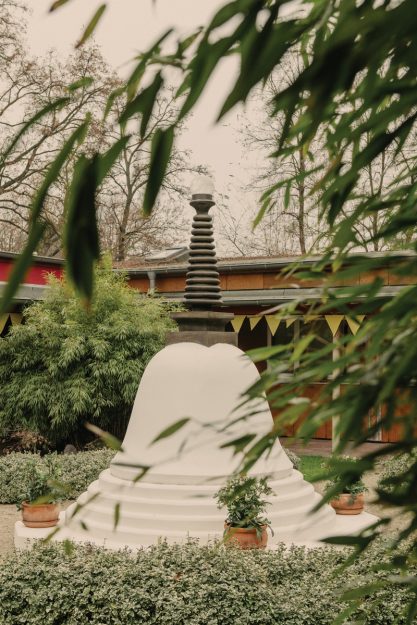
This Buddhist nonprofit hosts meditation classes from a variety of lineages and offers solo retreat opportunities starting at 30 euros a night plus donation. Here in the city that created (and has a museum dedicated to) currywurst, the Lotos Café provides fresh food and vegan options.
Neue Blumenstrasse 5
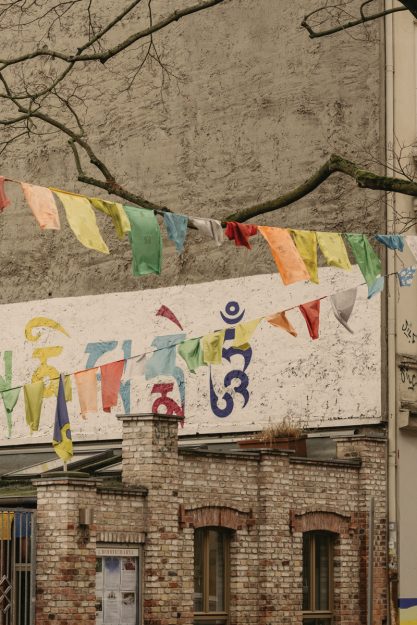
6| Bodhicharya
This Tibetan Buddhist center in the lineage of Ogyen Trinley Dorje, one of the claimants to the 17th Karmapa title, recently completed and dedicated a stupa after years of fundraising, planning, and construction. All are welcome to experience the healing and power of this sacred structure, and the surrounding “Garden of the Senses” serves as a home to hundreds of medicinal plants and a refuge for endangered insects.
Kinzigstrasse 25
7| Fo-Guang-Shan Berlin
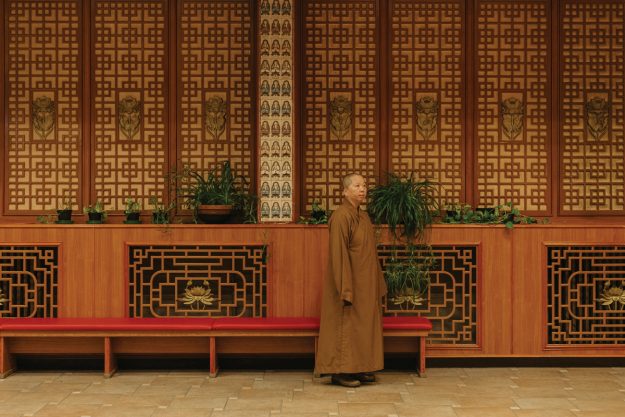
This Chinese Buddhist temple, which is a part of Buddha’s Light International Association and was established in 1993, has Sunday services, Wednesday meditation, and a number of cultural events for the sangha. The temple houses monastics, and tours of the complex, which features three buddhas in the meditation hall and a shrine to Kwan Yin, the bodhisattva of compassion, are available every day but Monday.
Ackerstrasse 85-86
Thank you for subscribing to Tricycle! As a nonprofit, we depend on readers like you to keep Buddhist teachings and practices widely available.
